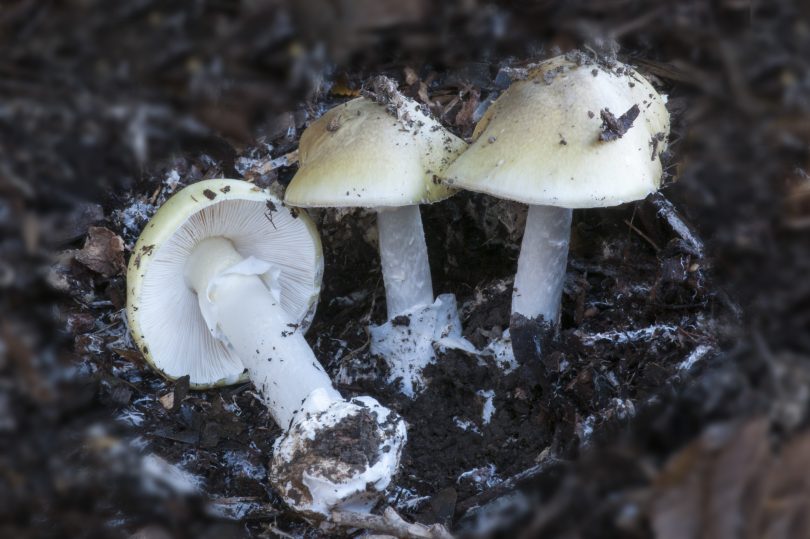
Death cap mushrooms (Amanita phalloides) shouldn’t be eaten. Photo: Alison Pouliot.
A warning has been issued to stay away from wild mushrooms after toxic mushrooms were detected in regional areas.
The death cap mushroom (Amanita phalloides) is potentially deadly. Eating any part of the mushroom is dangerous, even when cooked.
NSW Health and local councils have been conducting ongoing surveillance for the mushrooms over the past two years, after an initial detection in southern NSW.
NSW Poisons Information Centre Senior Specialist Genevieve Adamo said people should seek healthcare immediately if they thought they’d eaten one.
“Symptoms of mushroom poisoning can sometimes be delayed, but early treatment is vital to health outcomes,” Ms Adamo said.
“These include vomiting and diarrhoea, and in severe cases, liver and kidney damage or death.”
Region understands the mushrooms have been detected at locations across the Southern, Murrumbidgee and Illawarra Shoalhaven local health districts.
The spokesperson said they were also detected in Sydney and the Southern Highlands.
Botanic Gardens of Sydney Chief Scientist Professor Brett Summerell warned that identifying whether a wild mushroom is safe to eat is extremely difficult.
“There is no easy or reliable way to identify if a wild mushroom is edible or poisonous, so we advise people against foraging for, and eating, wild mushrooms,” he said.
In 2024 there were 23 hospitalisations of people who had eaten mushrooms (two younger than five years).
The NSW Poisons Information Centre also responded to 363 calls about exposures to wild mushrooms in NSW and the ACT – an increase of 26 per cent compared to 2023.
To 31 May this year, there have been 190 calls.
“Cooking poisonous mushrooms does not make them safe to eat,” he said.
“You should only eat mushrooms you buy from a reputable grocery store, supermarket or produce market.”
Ms Adamo said there were strategies people could use to keep themselves and their loved ones safe when they were outside.
“As young children have a tendency to put things in their mouths, they can be at risk,” she said.
“Watch your children when they are playing outside, especially around large trees in parks or your garden at home where mushrooms may grow.
“Remove any mushrooms that may grow to keep your children safe.”
If you are worried that mushroom poisoning may have occurred, call the Poisons Information Centre immediately on 13 11 26.
In an emergency, call triple zero (000) or go to an emergency department. If possible, take a sample of the mushroom or a photo to help with identification.
More information on mushroom poisoning can be found on the NSW Health website.
Original Article published by Claire Sams on About Regional.







